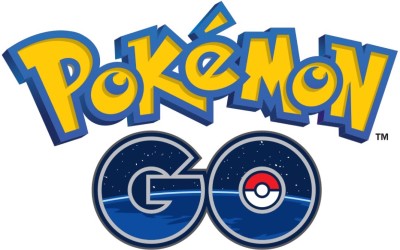It’s no secret that the annual Consumer Electronic Show (“CES”) is the place for businesses to show off their newest and coolest electronics and innovations. In recent years, it has seen an increase in the amount of technology associated with the fitness and health industries. According to this video, which features a number of interesting new products, there has been a 23% growth in the amount of digital fitness and health exhibits compared to last year.
The video (which I’m depending on because I didn’t actually go to CES…) highlights a few products that are definitely worth mentioning:
- Atlas Wearables Inc. came out with a fitness tracker that recognizes the actual exercises you are doing and keeps track of the weight used and repetitions completed.
- Under Armour is launching a set of headphones that also acts as a heart rate monitor.
- Easton Sports came up with a swing sensor that attaches to the end of a baseball bat which analyzes your swing and provides you with a plethora of data and video analysis to improve your technique.
- Fitbit, which has proven to be a big player in the fitness wearable field, also introduces its new smart fitness watch, the Fitbit Blaze.
In an industry that has seen significant growth in a short period of time, there’s no denying that technology will surely overlap. This could be good in the sense that it will allow companies to work together and many partnership opportunities may arise. On the other hand, it could also lead to a significant amount of disputes between parties and questions on who is using whose technology. That is why care must be taken when approaching other companies you would like to pitch your ideas to, especially when those companies are much bigger.
Valencell is a company that develops high-performance biometric sensor technology and licenses that technology to companies. It is also a company who has just filed two patent infringement lawsuits; one against Fitbit and one against Apple. Both complaints focus on the following four patents owned by Valencell and generally focus on physiological monitoring devices:
Valencell is claiming that back in 2009 its co-founder, Dr. Steven LeBoeuf, approached Fitbit’s co-founder, James Park, about incorporating a heart rate monitor into Fitbit’s products. Then in 2013, Fitbit supposedly inquired about licensing Valencell’s patents, but was quiet when Valencell tried following up.
In January 2014, both Fitbit and Valencell attended CES 2014. At the show, a Fitbit representative visited the Valencell exhibit and showed a significant amount of interest in how Valencell’s technology was incorporated into its wrist sensor design. Again, Fitbit failed to respond to follow-up requests by Valencell after CES. A year later, Fitbit began selling its Charge HR and Surge devices which are wrist bands that incorporate a heart rate monitor.
Fitbit issued the following statement regarding this suit:
“As the pioneer and leader in the connected health and fitness market, Fitbit has independently developed and delivered innovative product offerings to empower its customers to lead healthier, more active lives. Since its inception, Fitbit has more than 200 issued patents and patent applications in this area. Fitbit plans to vigorously defend itself against these allegations.”
The lawsuit against Apple is different in the sense that it was Apple who initiated contact between both parties. Valencell alleges in its complaint that Apple first contacted Valencell in February of 2013 to discuss licensing its heart sensor technology after it built a team to develop the Apple Watch.
In March 2013, the complaint alleges that Apple agents accessed the Valencell website and downloaded research papers on its biometric sensor technology. Specific Apple employees were listed in the complaint as having accessed the website and information. These employees also happened to be all on the team involved in the development of the Apple Watch.
In June 2013, Apple put in a request to view some of Valencell’s products that were covered under the patents. That summer, in front of 15 Apple employees, Valencell demonstrated a prototype of a watch with a heart rate monitor on the back. In the complaint, Valencell alleges that Apple received its patented products and conducted research on them between September 2013 and March 2014. Throughout 2014, Apple continued to ask Valencell about its technology regarding the wrist sensor even though it did not sell any wrist-based products yet. Finally in 2015, Apple released the Apple Watch, without licensing any technology from Valencell.
Valencell claims that Apple never actually intended to license any products or technology and gained access under false pretenses. According to the complaint, “Apple’s interaction with Valencell was fueled by a business decision that the benefits of infringing upon Valencell’s patented technology outweigh the risk of being caught and ultimately forced to pay damages.” Valencell even quoted Steve Jobs when he said that Apple “has always been shameless about stealing great ideas.”




